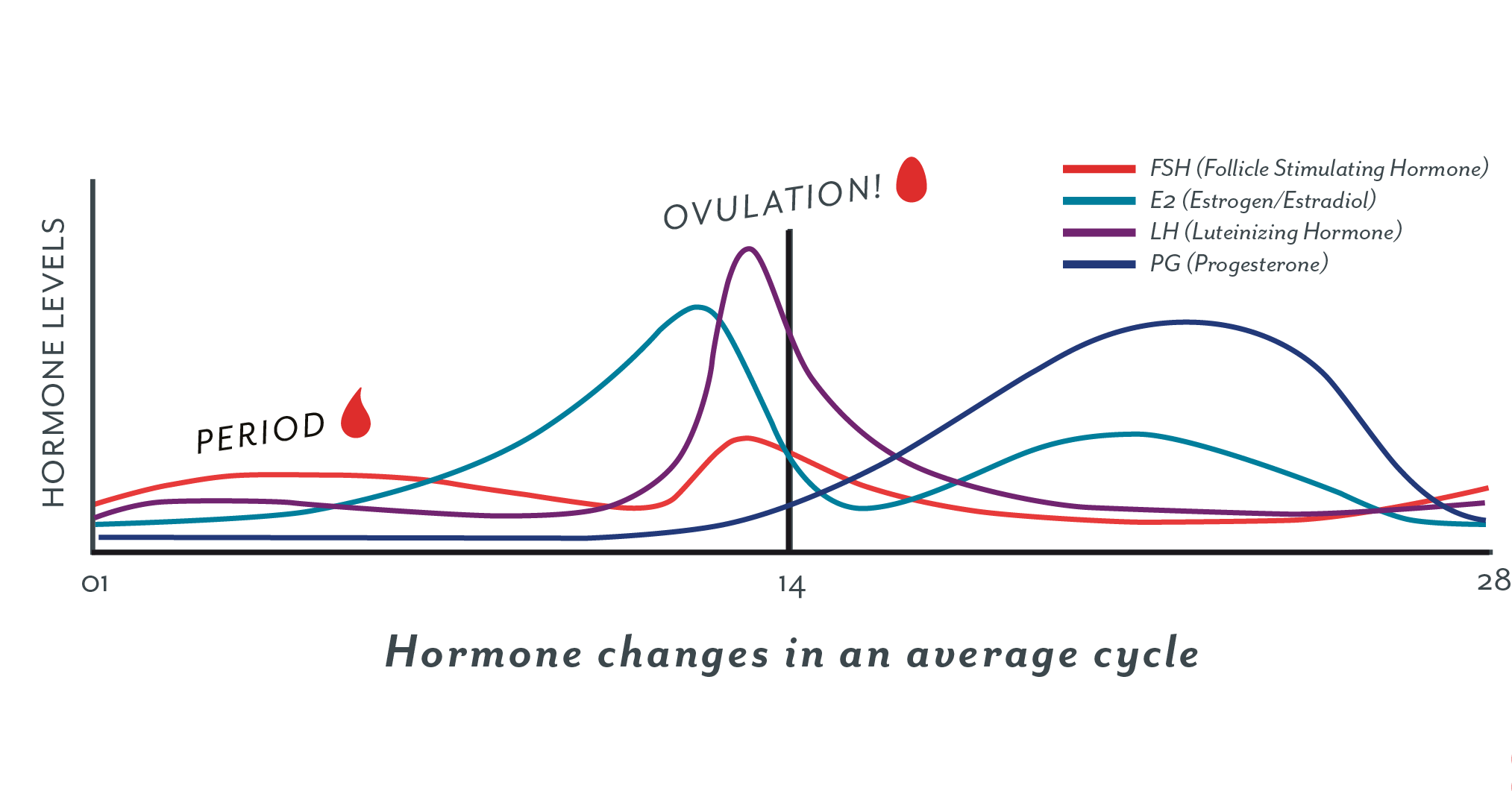
What Is Premenstrual Syndrome (PMS)?
Premenstrual Syndrome (PMS) is any combination of symptoms experienced by a female in the days immediately leading up to the start of their menstrual cycle. It’s estimated that as many as 3 out of every 4 women experience some level of premenstrual symptoms.
With symptoms consisting of mood changes, pain, and fatigue, this can be frustrating and down-right exhausting for women every time their cycle comes around.
Most treatments for PMS, such as anti-depressants, NSAIDS, and hormonal contraceptives, consist of “managing” the symptoms rather than addressing the causes of PMS. Here’s a little fun fact… while PMS is common, it is certainly NOT normal. By addressing the causes of PMS that I’m going to share with you here, you can reverse your PMS and not have to experience these terrible symptoms every 4-5 weeks for the rest of your life.
PMS Signs & Symptoms
- Mood swings
- Irritable and/or anxious
- Tiredness or trouble sleeping.
- Crying spells
- Bloating or stomach pain
- Breast tenderness
- Headaches
- Change in libido
- Fatigue
The True Cause Of Premenstrual Syndrome: Low Progesterone

Understanding The Female Cycle
First, let’s make sure we understand the basic physiology that occurs with a cycle. For sake of simplicity, we will discuss things based off of a 28-day cycle. From day 1-13, estrogen is slowly rising as many follicles are being produced. Within each follicle is an egg (oocyte) of which only one will be matured and released. By day 14, ovulation occurs. Ovulation is when the egg is released from the follicle in hopes of being fertilized by a sperm.
Beginning on ~day 14, progesterone starts rising in purpose of promoting gestation (progesterone = pro-gestation). With progesterone rising, the uterine lining increases to prepare for the planting and growth of the fertilized egg. During the second half of the cycle (luteal phase), the body realizes if the egg has or has not been fertilized. If the eggs hasn’t been fertilized, the estrogen and progesterone will decrease slowly as they approach the end of the 28 days. The progesterone slowly decreasing is what stimulates the shedding of the uterine lining (bleeding). Menstraution then occurs from ~day 1-5.
The main cause of premenstrual syndrome is the very low progesterone levels during the days leading up to menstruation. This is when the progesterone is at its lowest point – which is normal. However, if it becomes too low, that’s what causes symptoms of PMS.
Low Progesterone
Progesterone can become low due to 1 of 3 scenarios: (1) If progesterone is used up quickly by the adrenals, (2) if your body lacks the nutrients needed to make progesterone in the first place, or (3) if your thyroid function is poor.
1. Progesterone & The Adrenals
Progesterone can become deficient due to your adrenals using it to make more stress hormones. When our adrenals become stressed or “overworked,” they seek out other nutrients to make more stress hormones. Progesterone is a hormone that can be turned into cortisol when needed. Thus, if your stress hormones are commonly high, you may just be draining all of your progesterone hormones in order to support your adrenals. Remember if you body is under a lot of stress (mental, physical, or chemical), your adrenals will be kicking out more stress hormones. Obviously this can cause problems with our health, but when our body is in that stressed position, it is just trying to survive. In this case you have to focus on supporting the adrenals and regulating stress hormones.
In our office we use Systems Health Care to check anywhere from 5-20 different nutrients to find the one that is going to help your adrenals the most. A whole form of Vitamin C (like Camu berries – NOT ascorbic acid), choline, Vitamin B2, Vitamin B3, and phosphorus are a few examples. An adaptogenic herb like Ashwagandha, Rhodiola, or Tulsi may be needed. Also very importantly, a proper functioning diaphragm and diaphragmatic breathing is also essential.
2. Progesterone & Nutrient Deficiencies
Progesterone can also become depleted due to a lack of proper nutrients. This can be a dietary problem or a malabsorption problem. One problem that I see commonly in practice is a Vitamin B2 (riboflavin) deficiency due to gut infections. Certain bacterias and fungi will feed on Vitamin B2 resulting in a B2 deficiency. This would be an example of malabsorption.
An example of a dietary problem, however, would be if a patient is simply not getting enough Vitamin B3 (Niacinamide) or healthy fats (and cofactors) in their diet. If any of these needed nutrients are not present, your body will not be able to make enough progesterone. In this case, you have to focus on good dietary intake/nutrition and addressing anything depleting you of nutrients (infections and toxicities). In our office we use Systems Health Care to address infections, toxicities, and nutrient deficiencies and find exactly what nutrients are needed to correct these things.
3. Progesterone & The Thyroid
Thirdly, poor thyroid function can cause problems with progesterone. A healthy thyroid system causes cells to be more sensitive to progesterone. If cells become more sensitive to progesterone, it will begin to take in and utilize whatever hormone is there–even if there is not much. Often times a good iodine supplement will help with progesterone sensitivity, however, always be careful when addressing anything thyroid-related. We use a very specific and effective technique in our office called Systems Health Care to get to the bottom of any hormone problems. In this specific progesterone scenario, you have to focus on thyroid function overall.
Suffering from Premenstrual Syndrome?
At Freedom Health and Wellness, we address all of these things and more through a personalized and functional approach. We help people with chronic diseases and illnesses regain their health by getting to the source of their health concerns.
Have questions?
Dr. Miller offers a free zero-risk 15-minute consult to connect, address any questions or concerns you have, or discuss what care may look like! Just click the button below to schedule your free consult and Dr. Miller will look forward to talking with you!
Ready to partner together?
If you are looking for a doctor who is genuine, compassionate, and most importantly, able to help you, click below to schedule your first appointment. We are excited to see life-changing results with you!